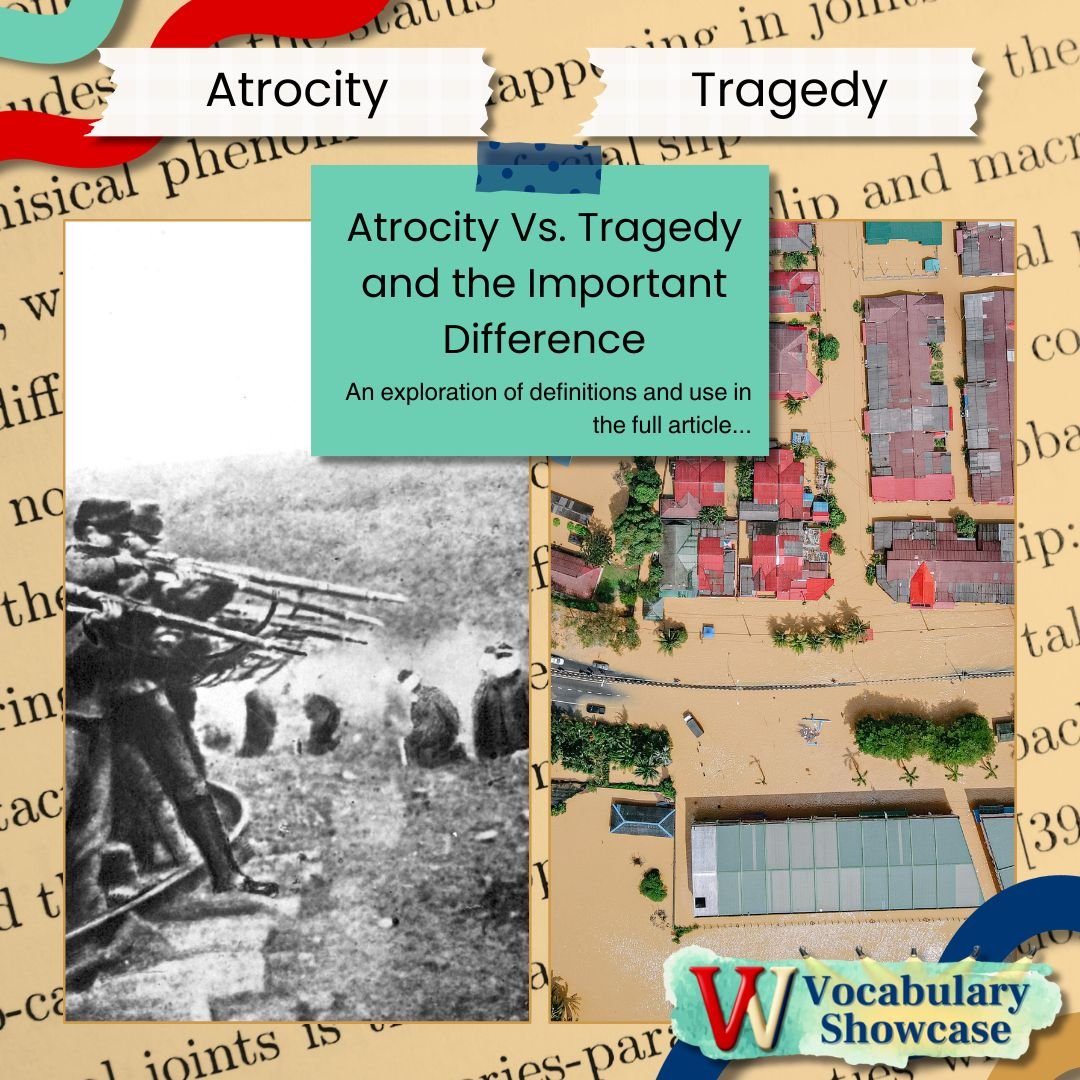Vocabulary Showcase: Atrocity vs. Tragedy and the Important Difference
Welcome to the Vocabulary Showcase. This week is a serious one. I’ve been thinking about how we use the word ‘tragedy’ to talk about terribly sad events for years now, and I think now is the time to talk about why.
What’s the Difference Between an Atrocity and a Tragedy?
Words change their meanings all the time, this is normal for a culture and a language. But, there are times when we need to think about the power that words have, and what the consequences of powerful words changing their meanings could be. What does it change? When it comes to ‘atrocity’ and ‘tragedy’, to me, the difference is vital (the most important - even to human life).
Cambridge English Dictionary Definitions of Atrocity and Tragedy
Atrocity - “an extremely cruel, violent, or shocking act.”
Tragedy - “a very sad event or situation, especially one involving death or suffering.”
On the surface (at the top of the water) it looks like atrocity and tragedy have very similar meanings, but underneath the surface, there is an important difference. That difference is human choice. Nobody chooses a tragedy, it just happens. Hurricanes (extremely strong wind storms), tsunamis, and earthquakes just happen. Human beings choose to create an atrocity. Atrocities like terrorist attacks, murders, and war crimes were all planned and chosen by people.
How do We Use the Word ‘Tragedy’ in the News?
I have noticed for a long time that we have been using tragedy to describe any large-scale or shockingly sad event in the news. And that includes ones that a person, or group of people, planned and enacted (made it happen). A tsunami and a terrorist bombing are both described as tragedies, and the word atrocity is rarely (not often) used.
What’s Wrong With Using ‘Tragedy’ to Describe an ‘Atrocity’?
I believe that choice is an important part of describing an event and one that should not be taken away. If we describe a tsunami as an atrocity, we are saying that someone chose to create this weather event which hurt and killed people.
This has actually happened: In 2017 US Evangelical Christian leaders blamed LGBTQIA+ people (gay, lesbian, trans, etc. people) for Hurricane Harvey.
If we choose to describe a terrorist attack as a ‘tragedy’ we are implying (make it look like) that nobody chose to do this. There is a ‘loud voice’ in the word tragedy which we understand as meaning ‘very sad’, but there is also a ‘quiet voice’ which we understand as ‘unavoidable’; we are saying that nobody could have stopped this, and nobody chose this action.
In 2023 the Hamas-led terrorist attack on a music festival in Israel was described in the news as a tragedy (this article is not about which side anyone is on over the Israeli-Palestinian war).
It’s easier for us to see why blaming people for an unchosen weather event that kills people is irrational (it does not make logical sense), but it is more difficult to see the harm we cause by saying that human acts cannot be stopped, or cannot be blamed, on someone.
Summing Up
When a human chooses to kill or harm other people in a shocking and violent crime, this is not accidental. And, when a natural disaster kills people, nobody can choose this and nobody can stop it. That is why a terrorist attack is an atrocity, and why a natural disaster is a tragedy. I believe it hurts us all to forget this. Atrocity and tragedy are powerful words with powerful effects on the way we feel and there are serious consequences to forgiving terrorists and to blaming innocent people for unavoidable natural events.
Please Note: I’m not saying we should keep the current or older meanings of all words, or that all other language changes are wrong. These are my personal (and psychologically supported) views on these two words alone.

